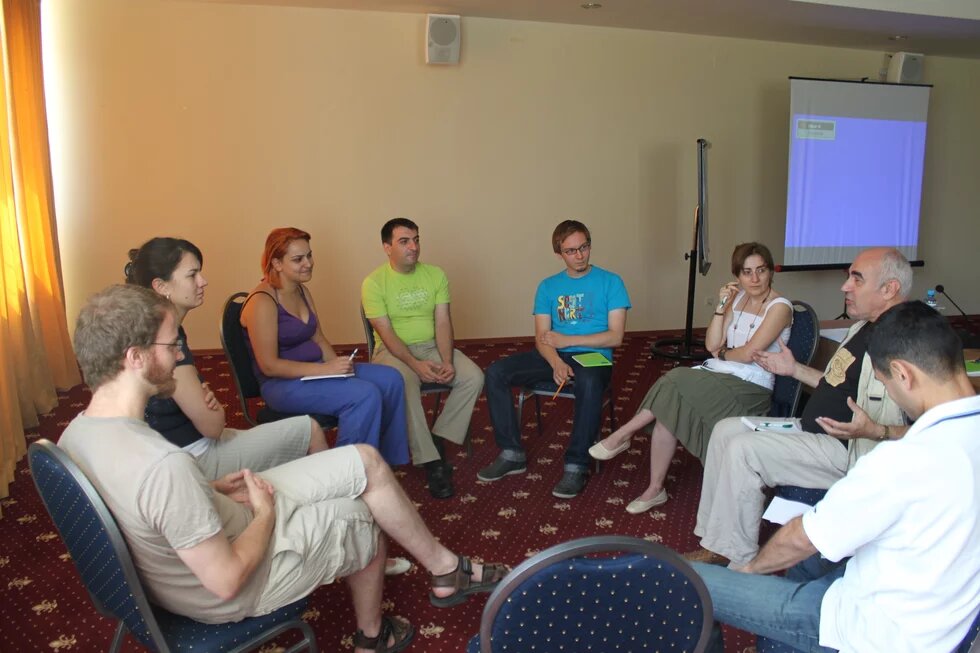
On 18-24 July 2010, the Heinrich Boell Foundation (HBS), in partnership with the Georg-Eckert Institut and with a financial support from the German Academic Exchange Service (DAAD) organized a summer school: State, Society and Conflict in the Transcaucasus in Bazaleti, Georgia.
The summer school, organized within the framework of the HBS Fellowship Programme, brought together fellows and alumni of the Programme from Georgia, Armenia and Azerbaijan and PhD students from various universities in Germany. In all, 15 young scientists and researchers from various academic fields ranging from political science and cultural studies to European studies and anthropology participated in the Bazaleti summer school this year.
A 5-day program of the summer school was designed to give the future scholars an opportunity to deepen theoretical knowledge and enhance practical skills necessary to successfully complete their individual researches.
Professors and experts from the Georg-Eckert Institut, the University of Leiden, the University of Oslo, the Center for Independent Social Research (Saint Petersburg/Russia), the Europa Universitat/American University of Central Asia, the Georgian Technical University, the Caucasus Institute (Armenia), the Caucasus Institute for Peace, Democracy and Development (Georgia), the Institute of Archaeology and Ethnography of the Academy of Science of Armenia have been invited to give lectures, organize sessions and provide an advice and feedback to the young scholars on their respective works.
The program of the summer school included sessions on academic writing, lectures on hybrid regimes, identity, discourse analysis, qualitative interviews, as well as presentations by the young scholars, individual consultations and panel discussions.
HBS fellows from the South Caucasus have focused their research papers on a variety of issues penetrating the local communities. Research topics included a case study of the Armenian refugees defining their livelihood framework and concepts after 20 years of the displacement; a study researching agricultural migrants and discourse among inner subgroups of the migrants in the modern Yerevan; a research examining emotional state and trauma coping strategies of the internally displaced persons in Georgia; a work presented by a Georgian scholar exploring construction of ethnic stereotypes and intolerance Javakheti. German PhD students also focused their attention on researching various aspects of the conflicts in the modern South Caucasus societies.
An intensive academic program of the summer school was followed by an interesting tour to the Stalin Museum in Gori, a visit to the ancient rock town Uplistsikhe and an early seven century Ateni Church.
After the summer school, the fellows and scholars will continue to work jointly on their research papers and will present their final projects by the end of the year.
For many years the HBS has been organizing the summer schools related to the conflict and its transformation in the South Caucasus. The HBS believes that understanding various aspects of the conflicts in the South Caucasus is a precondition for overcoming the differences among various divergent groups thus contributing to a more peaceful TransCaucasus.